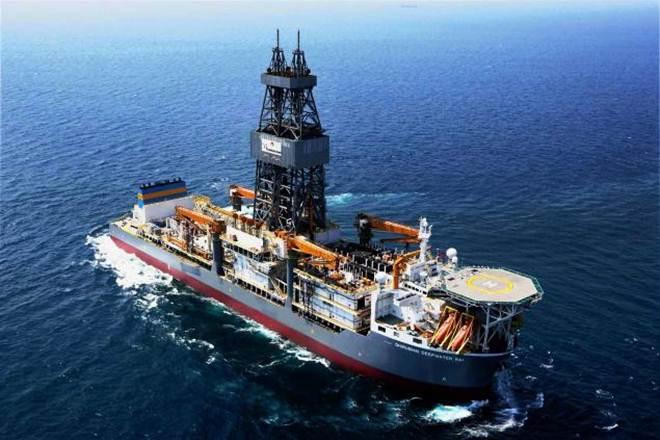
OPEC PREFERENCES FOR INDIA

PLATTS - As a major buyer of OPEC crude, India is hoping to leverage its ties with the oil producer bloc to gain "preferential treatment," the country's petroleum minister Dharmendra Pradhan told S&P Global Platts.
In an interview after attending the second annual OPEC-India Dialogue in Vienna on Monday, Pradhan said that every strategic relationship requires "good terms," and with India's economy driving global demand growth, the south Asian country is seeking to increase its influence with major oil producers.
"We don't want a mere buyer/seller relationship," he said. "We need energy security as we are giving production security. We are not tied up with anybody. Our strategic relationship is we need good terms. We need preferential treatment."
India, which relies on OPEC for 86% of its oil imports, started its annual dialogue with the producer group in late 2015.
Pradhan said its relationship with OPEC was trending in a positive direction but was also keen to emphasize that the country was always "open" to diversifying its crude supplies to other producers and that its options were escalating.
In June 2015, Pradhan urged OPEC to reduce its premium to Asian countries and provide what he said were fair and reasonable prices. But this time he admitted wanting to go beyond this concept.
"Today we go beyond an Asian premium," he said. "We got some benefits in previous years with this kind of initiative and I am hopeful OPEC has taken cognizance of a growing market of India, with the kind of reform we are initiating."
India has made steady policy progress since October 2014, when it deregulated diesel prices. The government then moved to boosting LPG penetration to reduce reliance on subsidized kerosene, while at the same time revamping the LPG subsidy system.
This was followed by the announcement in March last year of a new upstream policy to attract much-needed investment in exploration and production.
OPEC Secretary General Mohammed Barkindo, for his part, said the organization was cognizant of India's oil demand growth potential, as the country is expected to increase its oil consumption more than 150% by 2040 to 10.1 million b/d from its current 4 million b/d.
"With OPEC home to over 80% of the world?s proven crude oil reserves, and with many of its member countries well-positioned for exports to India, it is clear that this relationship will expand further," Barkindo said in prepared remarks before the start of the OPEC-India Dialogue.
The dialogue came three days before ministers from OPEC and 11 major non-OPEC producers meet in Vienna to review an output cut deal aimed at drawing down oil inventories.
Pradhan said India was appreciative of the effort to stabilize oil prices, which will hopefully reverse two years of major declines in upstream exploration. The deal, signed late last year, commits OPEC to 1.2 million b/d in production cuts, while the non-OPEC participants agreed to cut 558,000 b/d. Saudi Arabia and Russia, the world's two largest oil producers, have advocated for a nine-month continuation of the deal through March 2018.
"As a consuming country, we appreciate the energy security," Pradhan said. "If the price will not stabilize, the capex will reduce and ultimately it will affect the supply chain. Rightly, OPEC took this initiative for stability of the price."
IRAN DISPUTE
More than half of the OPEC member countries are crucial crude oil suppliers to India, namely Saudi Arabia, Iraq, Venezuela, Nigeria, Iran, Kuwait, UAE and Angola.
But there are some signs that Indian state refiners are beginning to cut Iranian crude purchases due to a political row over the impasse on the development of the Farzad B gas field, which has still not been finalized after more than two years of negotiations.
The minister reiterated that Iran should award the development of the 18.75 Tcf Farzad B gas field to an Indian company, given India's support during Western-backed sanctions that hobbled Iran's oil exports until they were lifted in January 2016.
"There are [no issues] in our relationship but India is a sovereign country and we will be looking in our best economic interest," Pradhan said. "We expect Iran to reciprocate because during difficult and challenging times, India stood by Iran. We continuously imported their oil to our refineries and paid we paid back every penny."
He added that since ONGC Videsh (OVL), the overseas arm of India's state-run Oil and Natural Gas Corp., discovered the field, he was hopeful that it would be awarded to an Indian company with a viable business model.
The consortium of OVL, Oil India Ltd and Indian Oil Corp. discovered the Farzad B gas reserves in 2008. OVL and IOC each hold a 40% interest in the block, and OIL 20%.
"Not only in Farzad B but in total we want to have mutual business good terms with Iran," Pradhan said.
Iranian President Hassan Rouhani committed in 2015 to Indian Prime Minister Narendra Modi that the Farzad B gas field would be excluded from any potential overseas investment other than from India.
Initially, both the countries aimed at concluding a deal by November 2016, but agreed to reschedule the deadline to February 2017, after they could not finalize OVL's $10 billion development proposal that included a gas liquefaction plant.
OVL subsequently submitted a revised $3 billion plan earlier this year that excluded the liquefaction plant, but it has yet to be approved.
Iranian exports to Asia have actually been falling sharply in the past few months, with shipments to its biggest customers, China and India, dropping 28% month-on-month in April.
Exports to India in April fell by almost 300,000 b/d from the previous month as this row raises the risk of Iran losing one of its biggest oil consumers.
-----
Earlier:





